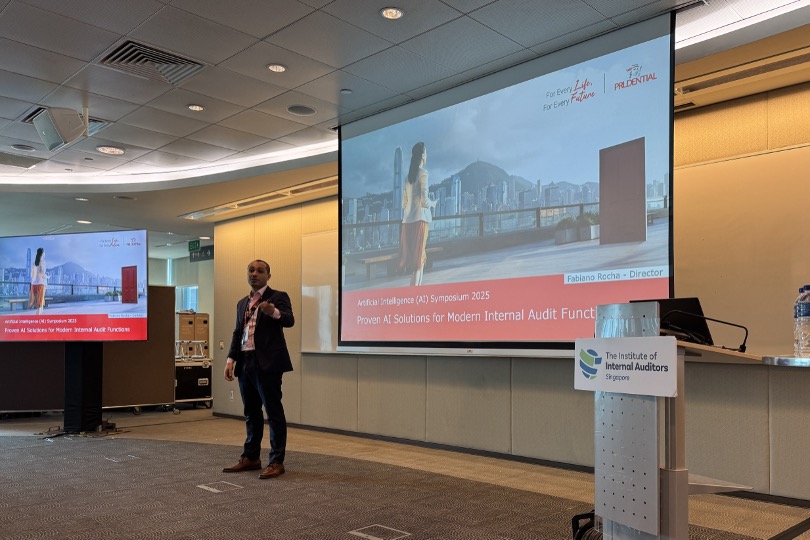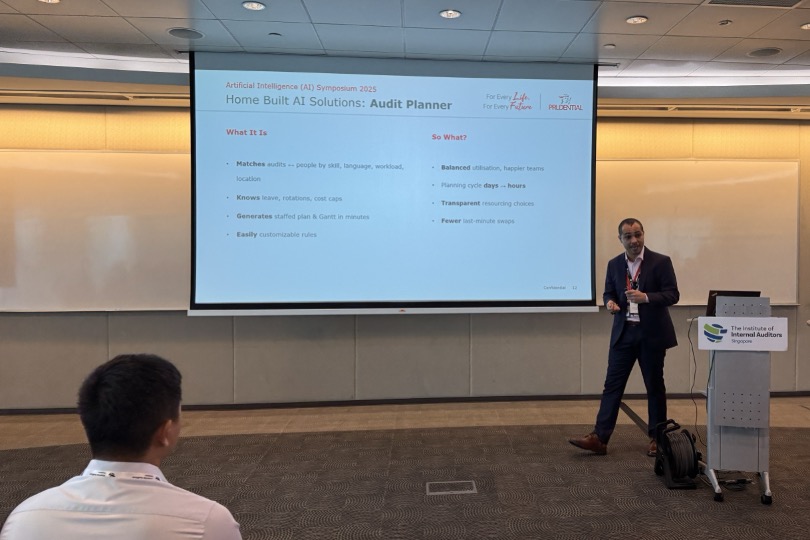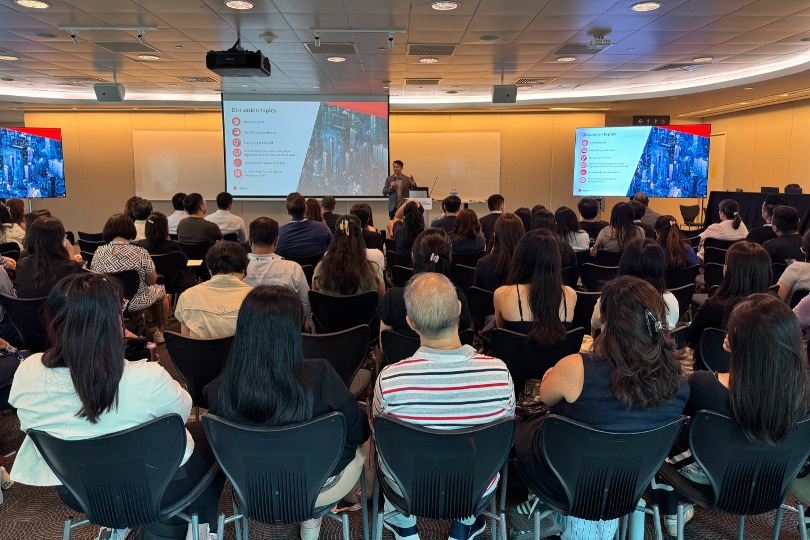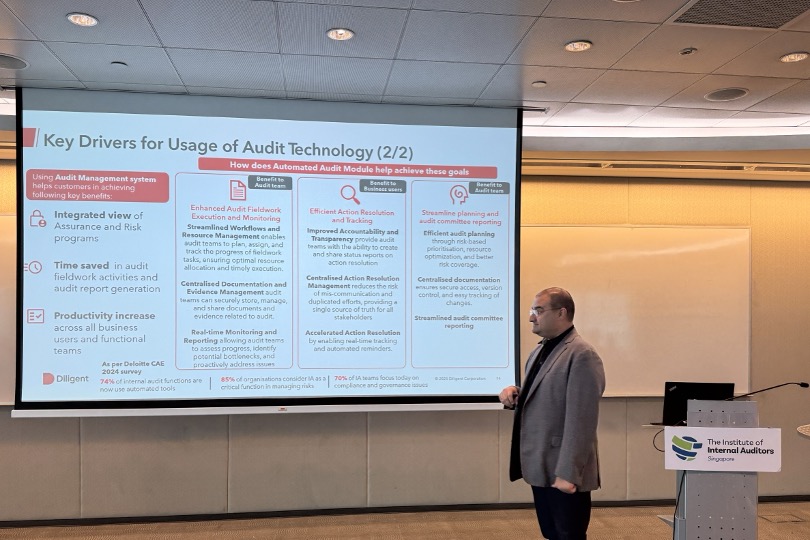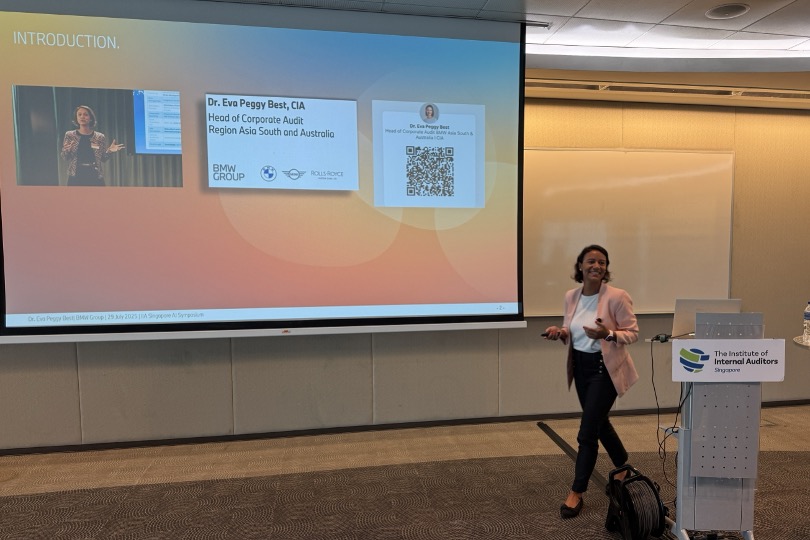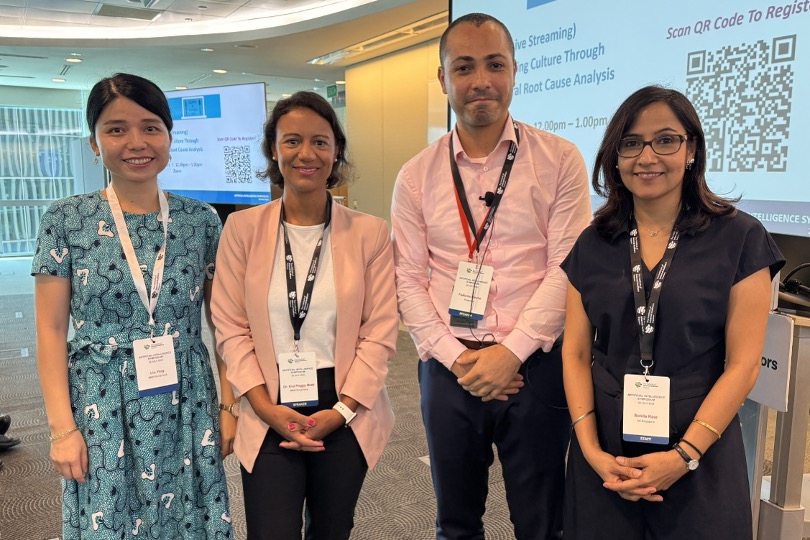Artificial Intelligence Symposium 2025
On 29 July 2025, over 100 professionals gathered at NTUC Centre for the Artificial Intelligence (AI) Symposium, a half-day event that delved into the practical applications of artificial intelligence in internal audit. Organised by IIA Singapore, the symposium featured speakers from diverse industries who shared their expertise on how AI is reshaping the audit landscape.
Fabiano Rocha, Director, Group-wide Internal Audit at Prudential, opened the symposium with “Beyond the Hype: Proven AI Solutions for Modern Internal Audit Functions”. He shared how his team deployed AI tools to enhance resource planning through skill matching, automate control test matrices, and analyse data using voice and document recognition technologies. His presentation offered practical insights from implementation experience, showing how targeted AI adoption has improved audit efficiency and risk coverage.
In “AI and the Future of Internal Audit: Becoming a Sought-After Business Partner”, Dusk Lim, Head of Specialist Sales, Asia Pacific, and Rangarajan Gangadharan, Solutions Sales Director, both from Diligent, spoke about the broader shift in internal audit’s role. They discussed how AI is enabling internal auditors to move beyond compliance, provide timely insights on emerging risks, and contribute more directly to strategic decision-making.
Dr Eva Peggy Best, Head of Corporate Audit, Region Asia South and Australia at BMW Group Asia, closed the symposium with “The Future of Auditing: AI Use Cases, Skills, and Best Practices”. Her presentation explored a range of practical AI applications within audit processes, illustrating how technology is already being used to enhance audit planning, execution, and reporting. She also emphasised the importance of upskilling, outlining approaches to training and development that can help internal auditors build relevant competencies in an evolving digital landscape. The session concluded with key lessons learnt and a forward-looking perspective on how AI may continue to influence the internal audit profession in the years ahead.
Throughout the afternoon, attendees engaged actively during the Q&A segments, exchanging ideas and seeking advice on implementation challenges and capability building. The symposium also provided members with valuable networking opportunities to connect with peers and speakers, strengthening professional ties within the internal audit community.
As the internal audit profession continues to evolve, the key takeaway from the event was clear. AI is no longer a distant concept. It is already shaping the way internal auditors work. The challenge now lies in adopting it purposefully, equipping teams with the right skills and leading the way forward.
